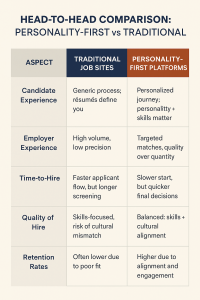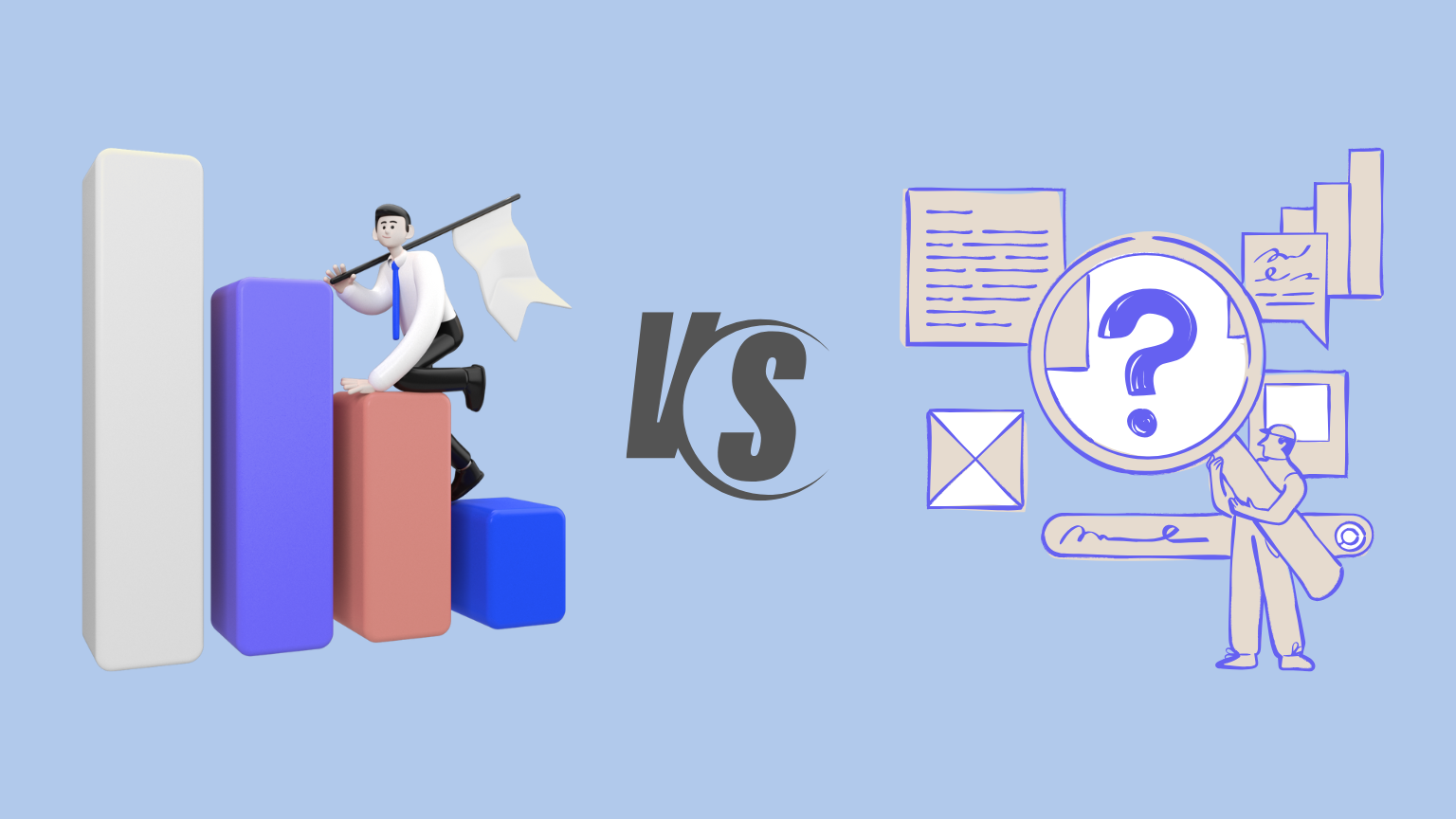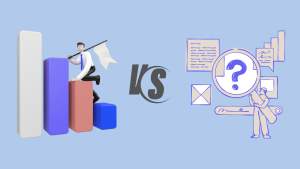For decades, job hunting has looked the same: upload your résumé, skim through endless postings, click “apply,” and hope an algorithm or recruiter notices you.
Traditional job sites made the process faster and more accessible, but they reduced people to bullet points and keywords.
That approach worked when hiring was mostly about hard skills, but the world of work has shifted.
Today, employers aren’t just chasing qualifications. They’re seeking people who fit into their culture, collaborate with their teams, and bring more than technical expertise to the table. At the same time, job seekers are no longer content with just “any role.”
They want workplaces where they feel aligned, valued, and able to grow. This is where personality-first job platforms are emerging as game changers, focusing not only on what you can do but also on who you are.
So, how do personality-first platforms differ from traditional job sites? And why should employers and candidates care about this shift? Let’s break down “Personality-First Job Platforms v/s Traditional Job Platforms”.
1. The Rise of Personality-First Hiring
Work is no longer a one-size-fits-all equation. A great coder who clashes with team dynamics, or a brilliant marketer who struggles with company values, can cost organizations time, morale, and money. According to Deloitte, poor cultural fit is responsible for up to 50% of new-hire failures. That’s a staggering number that traditional job boards rarely address.
Personality-first job platforms emerged to solve this problem. Instead of making résumés the sole determinant, these platforms integrate psychometric assessments, behavioral insights, and personality mapping into the hiring process. The goal? To ensure candidates and companies connect on a deeper level, creating better long-term outcomes.
2. Traditional Job Sites: Strengths and Limitations
How They Work?
Traditional job sites like Indeed, Naukri, or Monster are straightforward. Candidates create a profile, upload résumés, search job listings, and apply. Employers post openings, filter applicants using ATS (Applicant Tracking System) algorithms, and shortlist based on qualifications and experience.
Strengths of Traditional Job Sites
- Massive Reach: Millions of active job listings and users.
- Convenience: One-click apply saves time for candidates.
- Speed: Employers can quickly attract large applicant pools.
- Brand Visibility: Companies gain exposure to wide audiences.
Weaknesses of Traditional Job Sites
- Surface-Level Matching: Résumés rely on keywords, often leading to irrelevant matches.
- Overcrowding: Candidates face fierce competition with little differentiation.
- Bias Risks: Recruiters may unconsciously favor certain schools, titles, or experiences.
- Transactional Feel: Hiring becomes more about filling roles than finding true alignment.
In short, traditional job sites are efficient but impersonal, emphasizing quantity over quality.
Recommended Read- How to Use a Personality-First Job Platform to Find Your Dream Job?
3. What Personality-First Platforms Do Differently?
Candidate-Centric Approach
Personality-first platforms flip the script by starting with the person. Instead of just uploading a résumé, candidates complete personality or skills assessments that reveal their strengths, values, and preferred work styles. The platform then matches them with employers who value those traits.
Tools and Features
- Psychometric Testing: Measures personality traits, leadership style, and communication preferences.
- AI Matching Algorithms: Go beyond keywords to assess compatibility with roles and teams.
- Cultural Fit Assessments: Align candidates with companies where values overlap.
- Personalized Career Guidance: Suggests jobs that match long-term growth, not just immediate needs.
Benefits for Job Seekers
- Reduced trial-and-error job hunting.
- More meaningful matches that lead to career satisfaction.
- Lower risk of being overlooked due to résumé gaps or non-traditional backgrounds.
Benefits for Employers
- Access to candidates who align with company culture.
- Lower turnover rates and higher employee engagement.
- Better team cohesion and productivity.
4. Head-to-Head Comparison: Personality-First vs Traditional

5. Why Personality Matters More Than Ever?
Remote & Hybrid Work
In distributed teams, collaboration and communication outweigh just technical output. Employers need people who can adapt, empathize, and thrive without constant supervision.
Soft Skills Over Hard Skills
LinkedIn’s 2024 Workplace Report showed that 92% of employers prioritize soft skills as much or more than technical skills. Personality-first platforms naturally emphasize these traits.
The Cost of Mismatch
Bad hires cost companies up to 30% of the employee’s annual salary (US Department of Labor). Hiring for fit can save thousands and preserve morale.
Simply put: in a modern workplace where adaptability, resilience, and emotional intelligence are prized, personality isn’t just “nice to have” it’s essential.
Also Read- Networking Strategies for Multipassionate Individuals
6. Case Scenarios: A Tale of Two Hires
Candidate A – Traditional Job Site
Ravi uploads his résumé, applies to 30 roles, and gets shortlisted for two. After multiple interviews, he lands a job. On paper, he fits perfectly. But three months in, he feels drained by the company’s rigid culture, struggles to sync with his manager, and leaves within six months.
Candidate B – Personality-First Platform
Ananya creates a profile on a personality-driven platform. She completes a work style assessment highlighting her collaborative and creative strengths. She’s matched with a mid-sized company that values teamwork and innovation. She lands the role, finds satisfaction in the culture, and grows into a leadership position.
Lesson: Skills can get you hired, but personality fit keeps you there.
7. Future of Recruitment: Where the Market is Heading?
Recruitment is undergoing a paradigm shift. Traditional job sites won’t disappear, they still provide reach and efficiency, but the trend is clearly moving toward deeper, more human-centric hiring.
- AI Integration: Platforms will increasingly combine AI with psychometric data to predict not just performance, but long-term satisfaction.
- Employer Branding: Companies will showcase their culture upfront to attract personality-aligned candidates.
- Candidate Empowerment: Job seekers will use platforms to filter opportunities where they genuinely belong.
- Blended Models: Future platforms may integrate résumé-based search with personality assessments, creating a hybrid solution.
The bottom line: Personality-first hiring isn’t a trend; it’s the logical evolution of recruitment in a people-first era.
Conclusion
Traditional job sites built the foundation for modern recruitment, making job searching easier, faster, and more accessible. But in today’s world, efficiency without alignment is costly. Personality-first job platforms offer a smarter alternative: they humanize hiring, prioritize long-term fit, and give both candidates and employers the confidence that they’re making the right match.
At the end of the day, skills can be taught, but personality can’t be faked. The future of work belongs to platforms and employers who recognize that. For job seekers, it’s an invitation to show up as your authentic self. For employers, it’s a chance to hire not just for roles, but for relationships.
Because in the evolving world of work, the real difference isn’t who has the best résumé, it’s who has the right personality to thrive.








